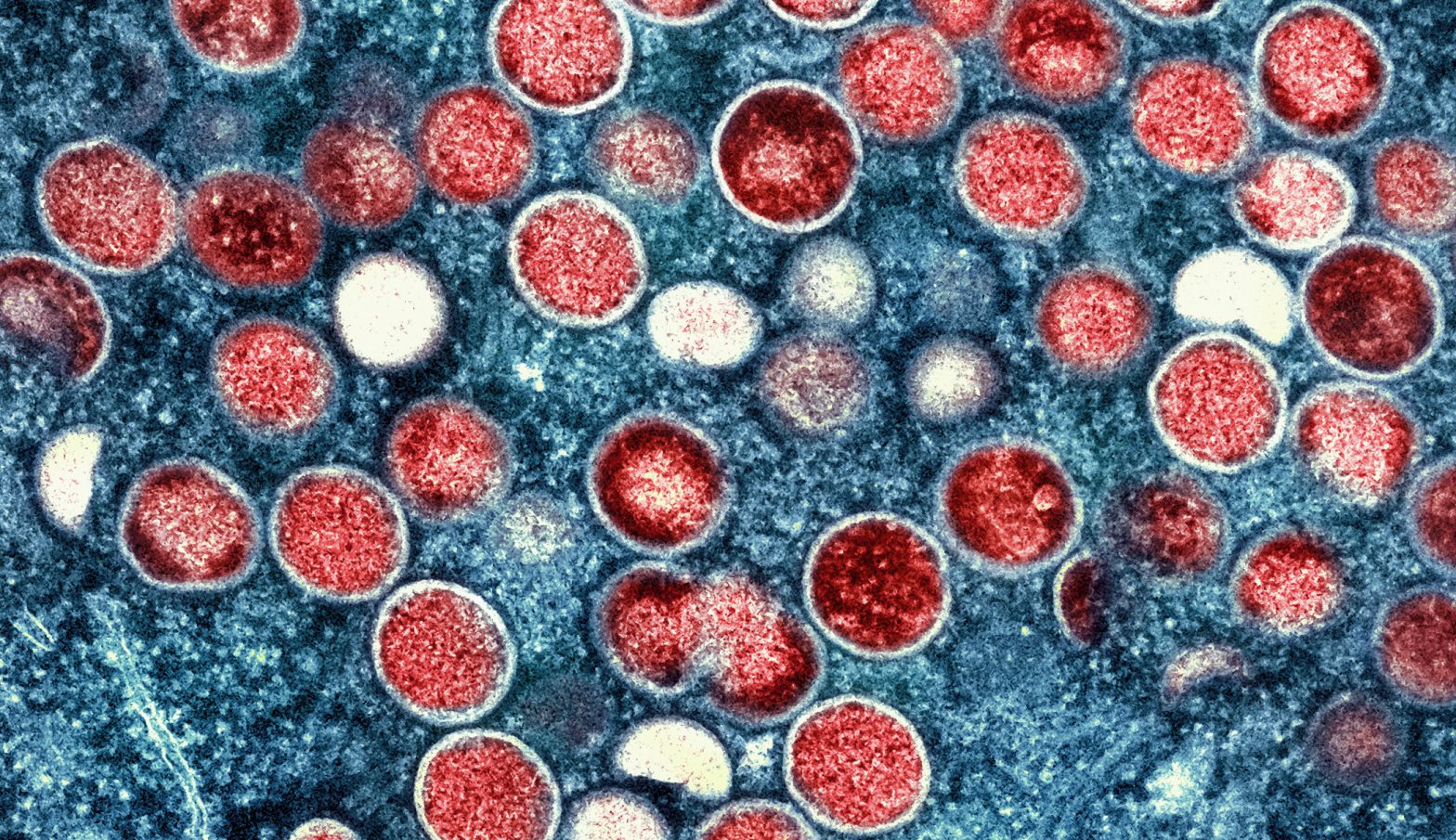Since early May, more than 16,000 cases of monkeypox, a viral disease endemic to countries in West and Central Africa, have been reported across the world, including more than 2,500 in the United States, according to the Centers for Disease Control. As of July 25, 72 cases have been detected in Virginia. While the majority of cases have been reported in northern Virginia, the Virginia Department of Health has, to date, identified four cases in the state’s Northwestern region, which includes the Blue Ridge Health District.
Monkeypox, discovered by researchers over 60 years ago, is a “contagious rash illness that’s caused by the monkeypox virus, [which] is in the same family of viruses that causes smallpox,” explains Blue Ridge Health District spokesman Jason Elliott. “But, typically, monkeypox is going to have a much milder infection than smallpox.”
Monkeypox symptoms often begin six to 13 days after exposure. The illness usually starts with flu-like symptoms, including fever, chills, headache, tiredness, muscle aches, and swollen lymph nodes. Rashes, pimples, blisters, or lesions then can appear on the genitals, in or around the mouth, on the perianal region, or all across the body. The infection lasts about two to four weeks.
“People may consider this to look like a sexually transmitted infection, or just a random pimple, so sometimes it can go rather unassuming,” says Elliott.
Public health officials stress that monkeypox is not a STI—it is spread through close contact with infectious rashes, scabs, or bodily fluids. While people can contract monkeypox during sexual intercourse or intimate physical contact, like kissing and hugging, they can also contract it by sharing towels, sheets, clothes, or other linens with a person who has been infected. The disease can spread through respiratory droplets, typically in a close setting like a household, as well.
“If you do have [monkeypox] symptoms, or you think [or] know you’ve been exposed,” says Elliott, “calling ahead to your doctor, health department, or ER is highly recommended, since this can spread from person to person.”
To date, monkeypox cases have been disproportionately reported among people who identify as gay, bisexual, and other men who have sex with men. However, anyone, regardless of sexual orientation, can contract the illness.
“The transmission of monkeypox is more accurately linked to someone’s behavior, rather than their identity,” stresses Elliott, citing Dr. Demetre Daskalakis, the CDC’s director of HIV/AIDS prevention. “But we are encouraging anyone in the LGBTQ+ community to be extra vigilant, because right now individuals in that community are at higher risk of contracting this.”
Due to a limited supply of vaccines and relatively low number of cases in Virginia, VDH is not currently recommending widespread vaccination against monkeypox. However, people who have been exposed or potentially exposed to the disease—or who have a high risk of exposure—should contact their medical provider to see if they can get vaccinated, which can prevent onset of the disease.
As monkeypox continues to spread across the country and world, everyone should “avoid skin-to-skin contact with rashes or people who have those rashes” to prevent themselves from contracting it, says Elliott. “Keep in mind whose linens we’re using, or if we’re trading shirts with people.”
Elliott also recommends discussing monkeypox with sex partners, and making sure they are not experiencing any symptoms, or have not come in recent contact with someone with symptoms.
Monkeypox is rarely fatal—since the global outbreak started in May, there have been five deaths from the disease. However, it can make immunocompromised people more susceptible to serious infections or illnesses, like pneumonia or sepsis.
“Once vaccines do become more available, individuals at highest risk will hopefully take us up on getting those,” Elliott says.
Virginians seeking more information about monkeypox prevention, testing, and treatment can call the state health department’s monkeypox hotline (877-829-4682), or visit vdh.virginia.gov/monkeypox/.
